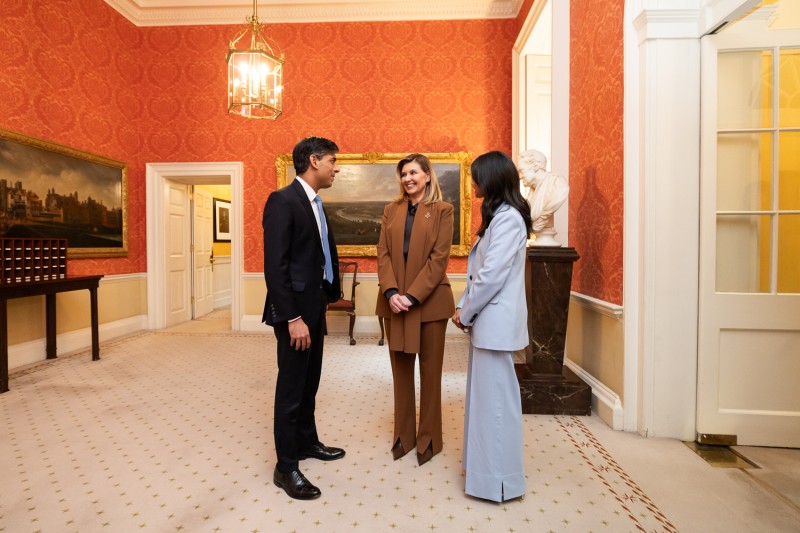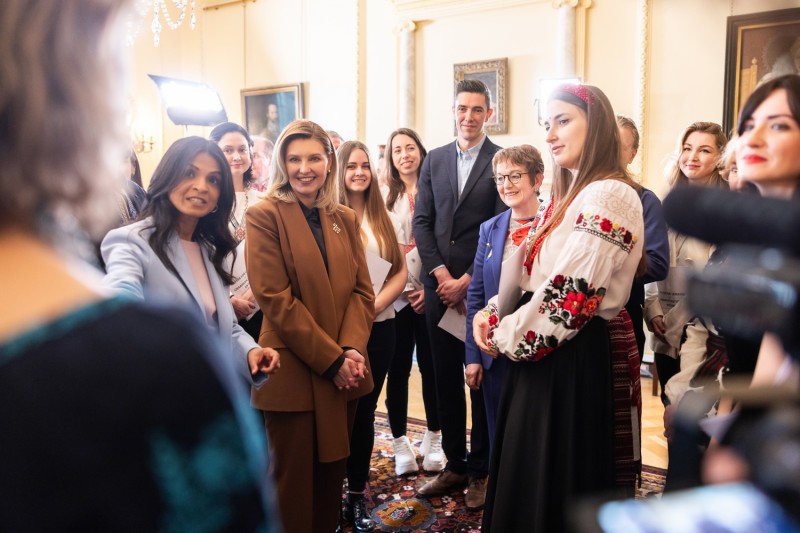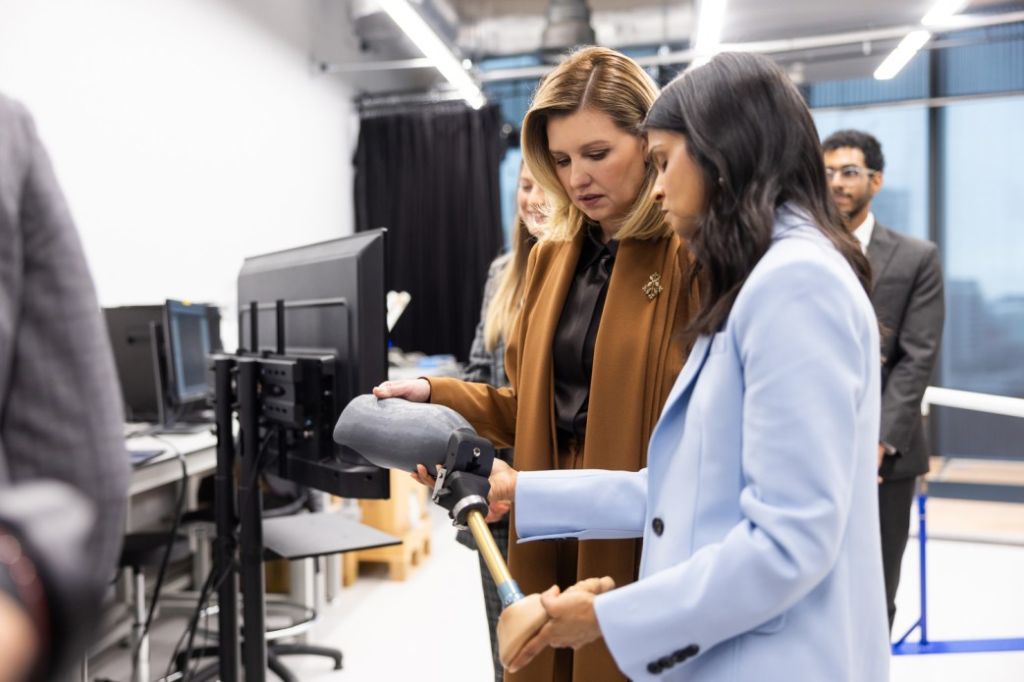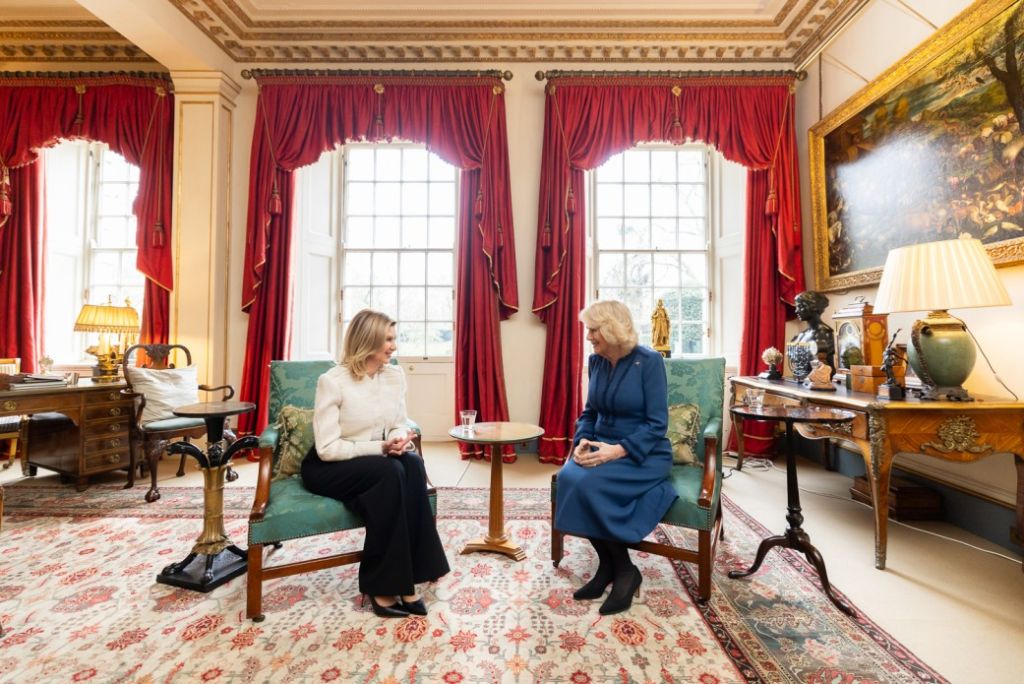Olena Zelenska met with Queen Camilla and the wife of the Prime Minister of the United Kingdom.
The First Lady of Ukraine Olena Zelenska, during her visit to the United Kingdom, met with Her Majesty Queen Camilla, where she expressed gratitude to Queen Camilla and her spouse, His Royal Highness King Charles III, for their support of Ukraine and for sheltering 200 thousand Ukrainian forced migrants in the UK, as reported by The Presidential Office of Ukraine.

“His Majesty’s strong message of support for Ukraine on the second anniversary of Russia’s full-scale invasion of our country was especially valuable for me, the President and the entire Ukrainian people,” Olena Zelenska said during the meeting.
The First Lady of Ukraine also met with the wife of the British Prime Minister, Akshata Murty and conveyed her gratitude for the recent visit of the British Prime Minister to Ukraine.
“Your husband’s visit to Kyiv last month has further strengthened relations between Ukraine and the UK. We hope that ties between our countries and people will continue to develop on an upward trajectory,” Olena Zelenska noted.

Olena Zelenska thanked Akshata Murty for participating in the Third Summit of First Ladies and Gentlemen in Kyiv and invited her to participate in the fourth one.
During the meeting at Downing Street, the residence of the Prime Minister of the United Kingdom, a Ukrainian song was performed, and the Ukrainian anthem and “Prayer for Ukraine” were performed by Ukrainian forced migrants and members of the Royal Opera Chorus.
“I believe that these performers will soon be able to perform in Ukraine. Safely, victoriously, at home,” the President’s wife said.

Akshata Murty and Olena Zelenska visited the Centre for Blast Injury Studies at Imperial College London, established in 2011 to study the challenges associated with blast injuries. The Centre brings together around 50 participants from seven different departments of the college, and Cambridge students shared how they research gait and work on prosthetics for low-resource environments. There are also 3D printers for making prostheses in the institution.

“Every day of the Russian invasion brings new blast injuries, and more than 20,000 Ukrainians need prostheses. That is why Ukraine is developing, among other things, a medical partnership with the world in order to attract all possible experience to save people. It will include the British contribution,” Olena Zelenska said.
The Center’s main task is to improve understanding of blast injury patterns, treatment and recovery, and to develop better ways to protect those serving in conflict, reducing the long-term impact of such injuries on individuals, their families and communities. The Centre for Blast Injury Studies implements educational initiatives through which it shares its developments and achievements.
